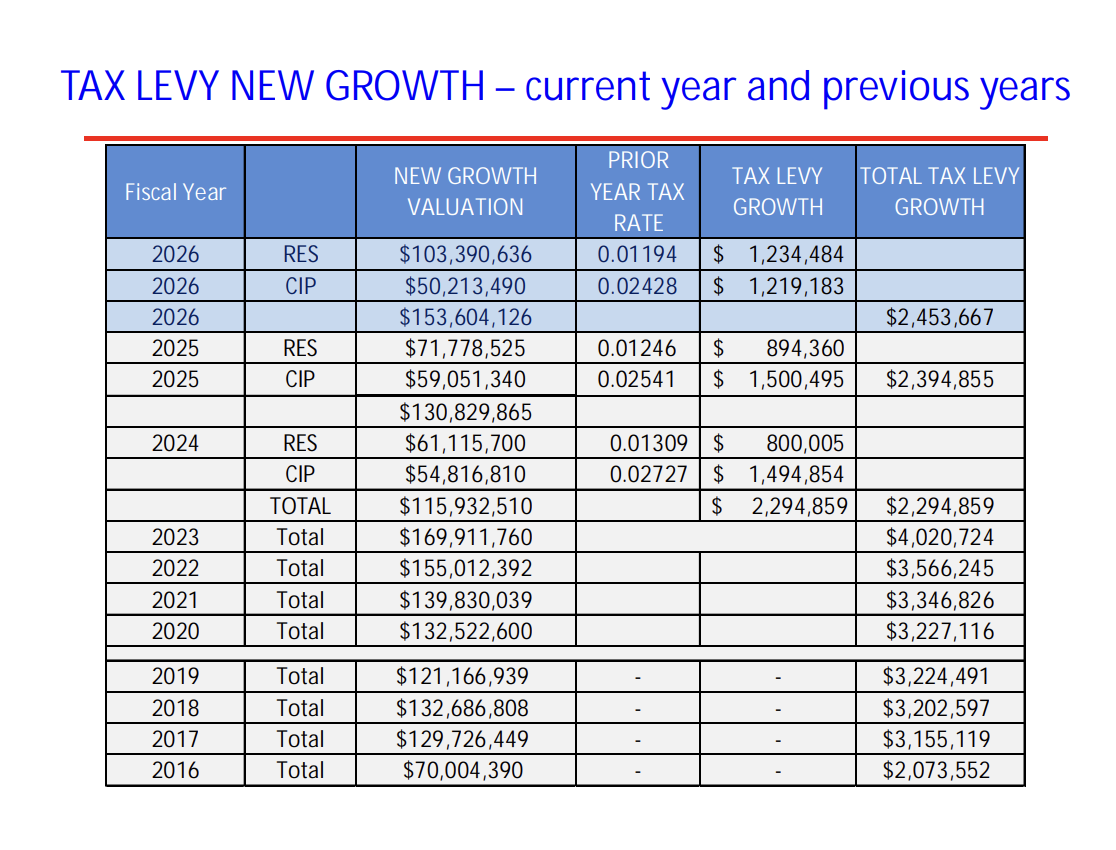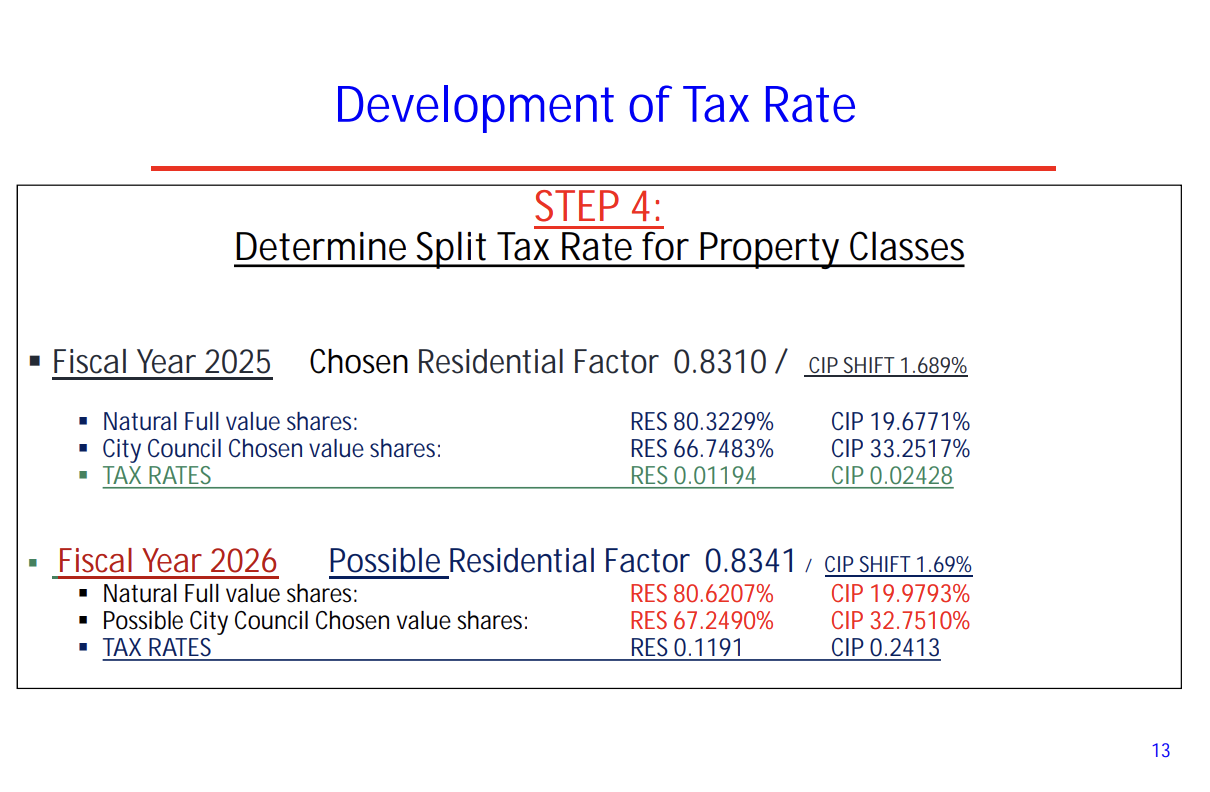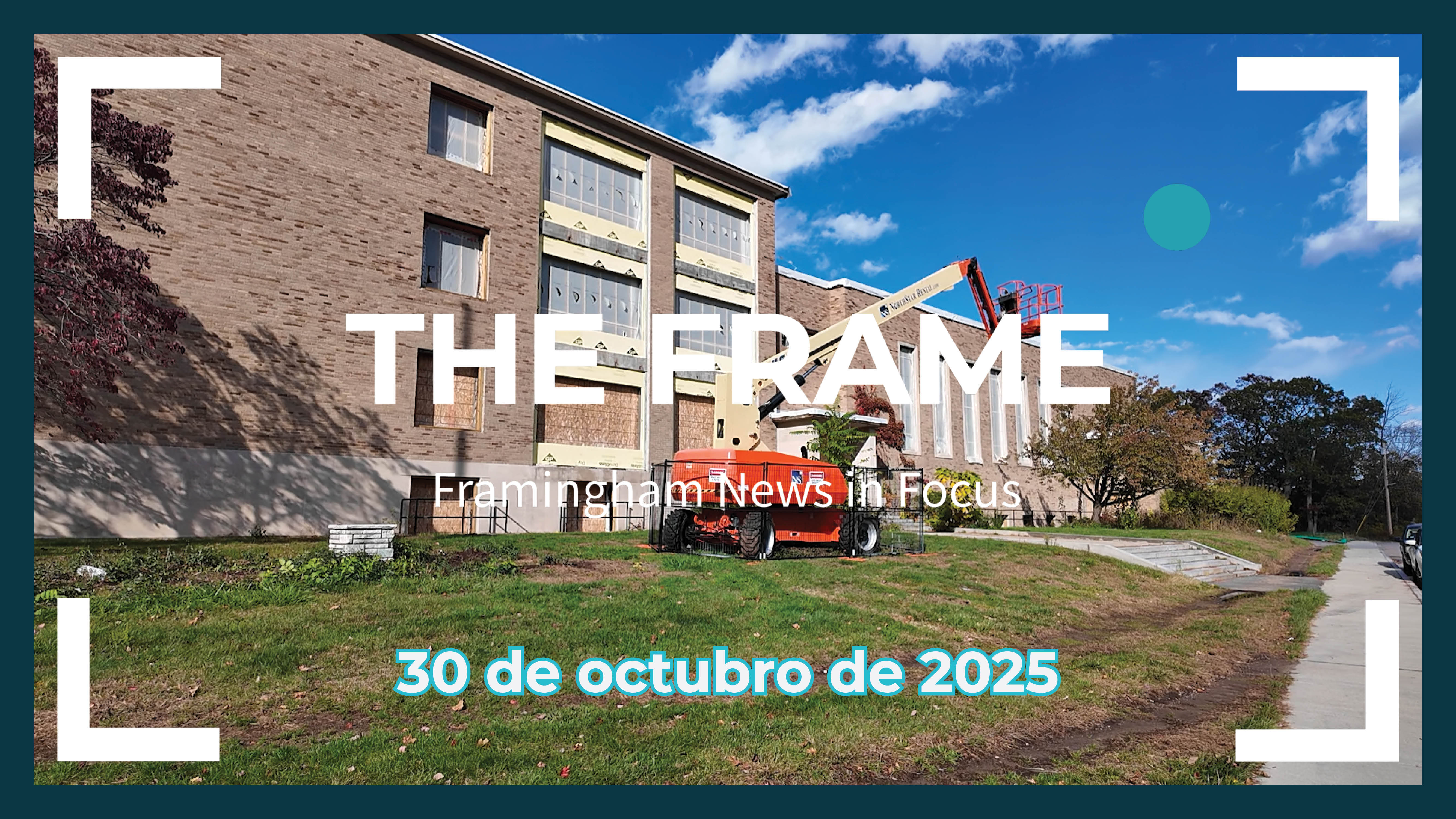With a 1.69% CIP shift—which was the same shift seen in FY25—residential taxpayers are slated to pay $11.91 per $1,000 of appraised property value. Commercial property owners would pay $24.13 per $1,000.
FRAMINGHAM - The Framingham City Council approved the fiscal year 2026 tax rates for residential, commercial, and industrial taxpayers during their meeting on Monday, November 10, maintaining the same tax rate shift between sectors that was approved last year.
Chief Assessor for the city Ed O’Neil presented the latest batch of tax assessments for the new fiscal year, which is an interim year that will not result in an official certification of property values.
Overall property valuations in Framingham grew just over 5% from FY25 to FY26, as the figure rose from about $15.6 billion to almost $16.5 billion in total taxable value. Assessed residential values grew by 5.7% compared to last year—from over $12.5 billion to about $13.3 billion. O’Neil noted that the amount of condominium parcels within the city decreased by 21 over the past year, but the overall value of those properties increased thanks to projects such as the Baiting Brook Farm housing development. He also pointed to a strong rental market for apartments as more local projects have gained approval.
The total commercial property valuation in Framingham saw a 3.6% rise compared to FY25, going from $2.1 billion to nearly $2.2 billion. Industrial valuations grew in that time as well, representing a 3.8% rise from close to $487 million to $505 million. Personal property valuations went from almost $501 million to about $523 million, a 4.4% increase from FY25. O’Neil touted stabilized commercial and industrial class values within Framingham, though office properties remain mixed.


The tax levy for Framingham in FY26 is just over $235 million, while the total tax levy growth is set for about $2.4 million. O’Neil said the latter figure has grown for three consecutive years.


The City Council was tasked with choosing the residential tax factor and the commercial, industrial, and personal (CIP) shift for FY26; Framingham uses a split tax rate system, meaning the tax burden can change between sectors year by year.
At-Large City Council member George King noted the Finance Subcommittee had previously recommended a 1.69% CIP shift with a residential factor of 0.8341, meaning that residential taxpayers would be slated to be taxed $11.91 per $1,000 of appraised property value. Commercial property owners, meanwhile, would pay $24.13 per $1,000 of appraised value. The 1.69% mark is the same CIP shift that was approved for FY25.

District 2 City Councilor Brandon Ward said that while he would like to see a lower commercial tax rate to spur economic growth among local businesses and to further subsidize lower taxes for residents through new tax revenue, the current economic status for residents led him to support the 1.69% shift—and thus, no increased tax burden on citizens.
“I’m not really willing to make (the lower commercial tax burden argument) this year, given some of the financial burdens that are being placed on residents for other reasons—both from the federal level but also burdens that we placed on residents, whether it’s water rates or other increases,” Ward said at the Memorial Building on Monday.
The City Council voted 9-0 in favor of the proposed FY26 tax rates on Monday; District 9’s Tracey Bryant and Noval Alexander of District 5 were not in attendance for the meeting. Mayor Charlie Sisitsky can either approve or reject the rates, though the City Council could veto his rejection with a two-thirds majority vote.

Esta semana no The Frame: as obras de reforma do novo centro comunitário local continuam enquanto os moradores fornecem feedback e ideias por meio de uma pesquisa; candidatos locais participam de um fórum de discussão sobre sustentabilidade e meio ambiente; e uma análise do passeio anual de bonde assombrado do Centro Histórico de Framingham — além da conexão da comunidade com o Halloween como o conhecemos hoje.